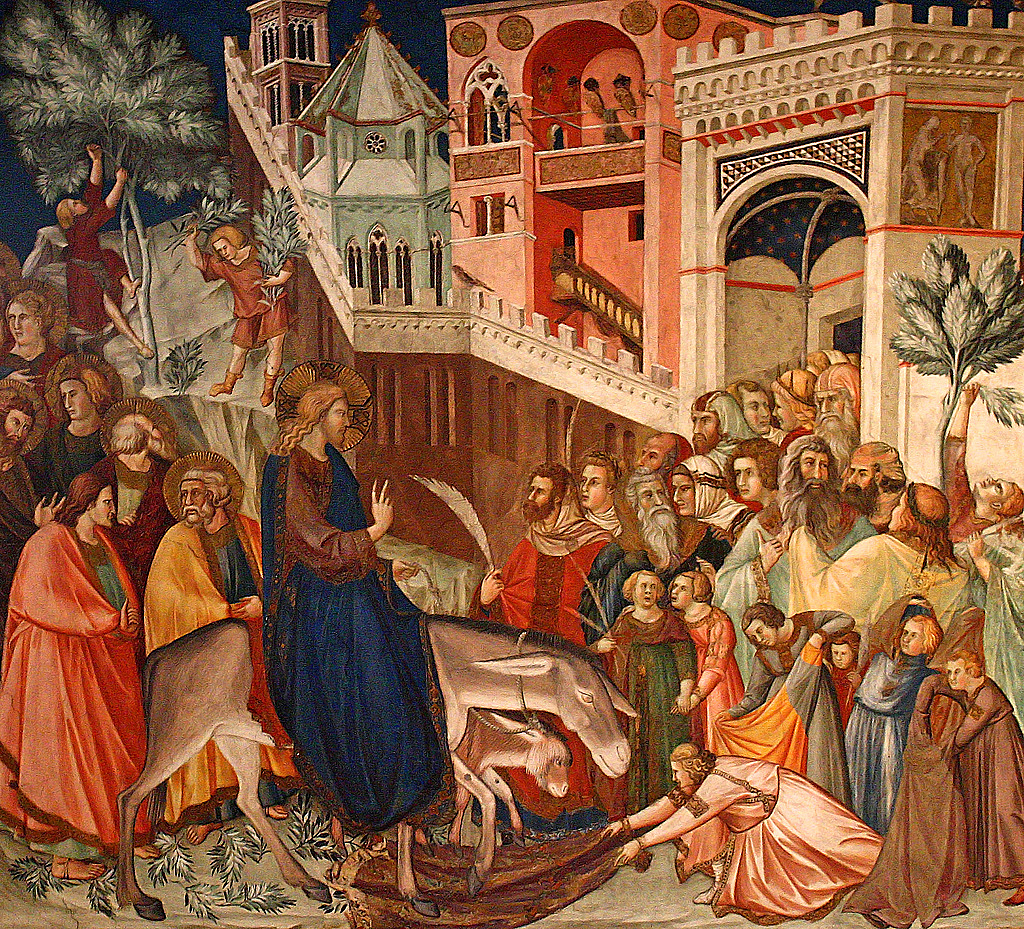Palm Sunday is a Liturgy that can be a little puzzling. We start out on a seemingly triumphant note. Jesus enters Jerusalem, the Holy City, and the center of the Jewish religion; the city he has been journeying toward throughout the gospel narrative, and he enters it to the adulation of crowds of people assembled for the feast. Cloaks are thrown down in the street, the people wave palms and chant “Hosanna.” This is it, isn’t it? It seems like Jesus’ message has finally been accepted, at least by the crowds who have long been yearning for a Messiah, an anointed one, to deliver them from foreign oppression.
Only that wasn’t the kind of salvation Jesus came to offer. Instead, he preached forgiveness and mercy and real justice and healed people from the inside out. He called people to repentance, to change their lives, to hear the gospel and to live it every day. He denounced hypocrisy, and demanded that those who would call themselves religious reach out in love to the poor and those on the margins. It wasn’t a welcome message; it wasn’t the message they thought the messiah would bring.
I think it’s instructive to reflect on the groups of people reacting to Jesus and turning their backs on him just five days after the triumph they offered. First there are the Jewish leaders who were jealous and suspicious and angry about the way Our Lord called them out for abandoning the people and instead insisting on the rigorous and mindless observance of the law. There are the Romans, those foreign occupiers who wanted the people to be quiet, obedient, and paying taxes, and who often sided with the Sanhedrin in order to keep the people docile. There are the crowds, Jews and Gentiles, who were happy enough to be fed with miracles but disappointed that Jesus wasn’t the same kind of Messiah they were praying for, and instead was one who called them to repentance, a change in their lives. There were the apostles, who you would think would trust Jesus by now, but instead fled in fear. There was Peter who abandoned his friend, and Judas who gave in to despair. There was Herod and Pilate who were manipulating the event trying to maintain their own pathetic little piece of history. It’s almost a perfect storm.
Who are we going to blame for this? Whose fault is it that they crucified my Lord? Well, we know none of those groups and people are really to blame. They certainly did Jesus wrong, but that wasn’t ever the reason he went to the Cross. Jesus was crucified for me. For you. For our sins. For those sins that have kept us from being friends of God for far too long. For those sins that have abandoned God and rejected his grace time and time again. Jesus came, and lived, and bled, and died to take away my sins. And yours. He willingly gave his life so that we might live.
He gave himself for us.
We adore you, O Christ, and we bless you. Because by your Holy Cross you have redeemed the world.
